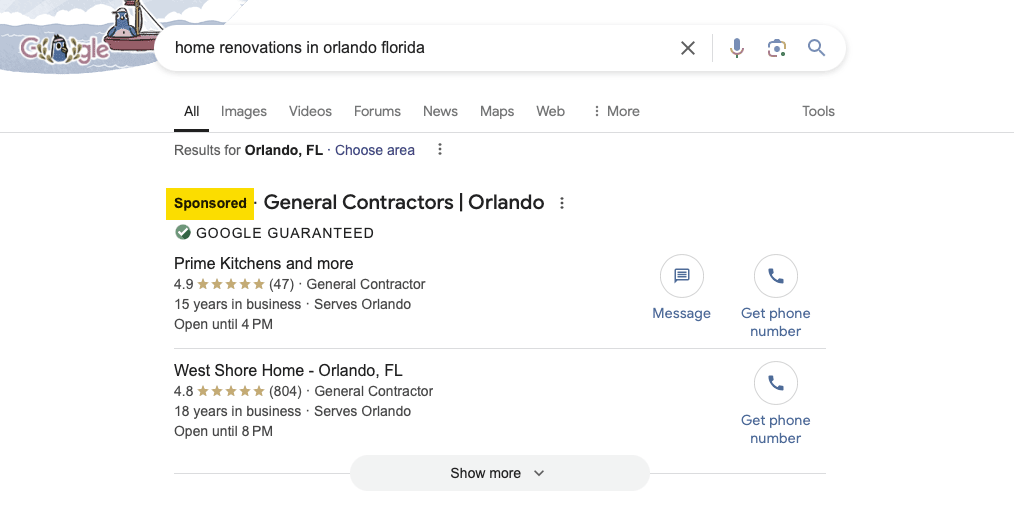From Clicks to Conversions: How Search Engine Marketing Solutions Transform Your Digital Presence
TL;DR
Search engine marketing solutions (SEM) offer immediate visibility, targeted advertising, measurable results, and cost-effective strategies to boost online presence and conversions. Key components include keyword research, ad creation, landing page optimization, bid management, and tracking. Hiring the right SEM agency or consultant can enhance your efforts through expert strategy development, campaign management, and continuous optimization. Understanding SEM costs and focusing on ROI are crucial. Integrating SEM with other marketing channels and staying updated on trends ensures long-term success.
Quick links:
- What is Search Engine Marketing?
- The Benefits of Search Engine Marketing
- Key Components of an Effective SEM Strategy
- Choosing the Right Search Engine Marketing Agency
- The Role of a Search Engine Marketing Consultant
- Understanding the Costs of Search Engine Marketing
- Maximizing the Benefits of Search Engine Marketing

Image © Google
What is Search Engine Marketing?
Search engine marketing encompasses a range of strategies aimed at increasing a website’s visibility on search engine results pages (SERPs) through paid advertising. Unlike SEO, which focuses on organic search results, SEM involves paid placements, typically through platforms like Google Ads and Bing Ads. The primary objective is to drive targeted traffic to your site, thereby increasing conversions and sales.
%
of online experiences begin with a search engine
Source: Ahrefs
The Benefits of Search Engine Marketing
- Immediate Visibility and Results
SEM offers instant visibility on SERPs, unlike SEO, which can take months to show results. By bidding on relevant keywords, your ads can appear at the top of search results, ensuring that potential customers find you quickly. - Targeted Advertising
SEM allows you to target ads based on various parameters such as location, device, time of day, and user behavior. This ensures that your ads reach the right audience at the right time, maximizing the return on investment (ROI). - Measurable and Scalable
With SEM, every aspect of your campaign can be tracked and measured. Metrics such as click-through rates (CTR), cost-per-click (CPC), conversion rates, and cost-per-acquisition (CPA) provide valuable insights into campaign performance, allowing you to optimize for better results. - Enhanced Brand Awareness
Even if users don’t click on your ads, repeated exposure to your brand name on SERPs can significantly boost brand recognition and credibility over time. - Cost-Effective
With SEM, you only pay when someone clicks on your ad (pay-per-click or PPC). This ensures that your budget is spent effectively on engaged users interested in your offerings.
Key Components of an Effective SEM Strategy
- Keyword Research
The foundation of any successful SEM campaign is thorough keyword research. Identifying the right keywords ensures that your ads appear in front of a relevant audience. Use tools like Google Keyword Planner and SEMrush to discover high-value keywords. - Ad Creation and Optimization
Crafting compelling ad copy that resonates with your target audience is crucial. Focus on creating headlines and descriptions that highlight the unique selling points of your products or services. Regularly test and optimize your ads to improve performance. - Landing Page Optimization
Directing traffic to well-designed landing pages that offer a seamless user experience is vital. Ensure that your landing pages are relevant to the ad content and have clear calls-to-action (CTAs) to encourage conversions. - Bid Management
Effective bid management involves setting appropriate bids for your keywords to maximize ROI. Utilize automated bidding strategies offered by platforms like Google Ads to adjust bids in real-time based on performance data. - Tracking and Analytics
Implement tracking codes and use analytics tools to monitor the performance of your SEM campaigns. Analyzing data helps identify what’s working and what needs adjustment, enabling you to make data-driven decisions.
%
of all web traffic referrals in the U.S. are attributed to Google
Source: Ahrefs
Choosing the Right Search Engine Marketing Agency
If you’re considering outsourcing your SEM efforts, choosing the right agency to assist with your search engine marketing solutions is crucial. Here’s what to look for:
- Experience and Expertise
Look for agencies with a proven track record in SEM. Check their case studies, client testimonials, and industry experience. - Customized Strategies
A good agency will take the time to understand your business goals and tailor strategies to meet your specific needs rather than offering a one-size-fits-all solution. - Transparent Reporting
Ensure the agency provides transparent reporting on campaign performance. Regular updates and detailed reports help you stay informed about your campaign’s progress. - Full-Service Capabilities
Agencies offering a full suite of digital marketing services can provide more holistic solutions, integrating SEM with SEO, content marketing, and social media strategies for better results. - Cost and ROI
Understand the agency’s pricing structure and ensure it aligns with your budget. Focus on the ROI potential rather than just the cost.

Image © Adobe Stock
The Role of a Search Engine Marketing Consultant
Hiring a search engine marketing consultant can be a valuable investment for businesses looking to improve their SEM efforts. A consultant brings specialized knowledge and experience to help you develop and implement effective SEM strategies.
- Expert Analysis
A consultant will analyze your current SEM efforts, identify areas for improvement, and provide actionable recommendations. - Strategy Development
They’ll help you create a comprehensive SEM strategy that aligns with your business goals, ensuring you target the right keywords and optimize your ad spend. - Campaign Management
Consultants can manage your SEM campaigns, continuously optimizing them for better performance and higher ROI. - Training and Support
Many consultants offer training for your in-house team, empowering them with the skills needed to manage SEM campaigns effectively.
Understanding the Costs of Search Engine Marketing
No matter your search engine marketing solutions, the cost can vary widely based on factors such as industry competition, keyword selection, and campaign objectives. Here are some key cost considerations:
- Cost-Per-Click (CPC)
CPC is the amount you pay each time someone clicks on your ad. High-competition keywords typically have higher CPCs. - Monthly Budget
Define a monthly budget for your SEM campaigns. Start with a modest budget and scale up as you see positive results. - Agency or Consultant Fees
If you’re hiring an agency or consultant, factor in their fees. These can vary based on the scope of work and level of expertise. - ROI and Lifetime Value
Focus on the ROI rather than just the cost. Consider the lifetime value of a customer when evaluating the effectiveness of your SEM campaigns.
Maximizing the Benefits of Search Engine Marketing
To get the most out of your SEM efforts, consider the following strategies:
- Continuous Optimization
SEM is not a set-and-forget strategy. Continuously monitor and optimize your campaigns to improve performance. - Leverage Remarketing
Use remarketing to target users who have previously visited your site. This helps keep your brand top-of-mind and encourages repeat visits and conversions. - A/B Testing
Regularly test different ad copies, landing pages, and bidding strategies to identify what works best. - Integrate with Other Marketing Channels
Integrate your SEM efforts with SEO, social media, and content marketing for a cohesive digital marketing strategy. - Stay Updated
The digital marketing landscape is constantly evolving. Stay updated with the latest trends, tools, and best practices in SEM to maintain a competitive edge.
%
Close rate for SEO leads—significantly higher than traditional marketing
Source: Ahrefs
What Next?
Search engine marketing solutions offer powerful opportunities for businesses to increase their online visibility, drive targeted traffic, and boost conversions. Whether you’re managing your campaigns in-house or working with a search engine marketing agency or consultant, understanding the key components and strategies of SEM is essential for success. By focusing on targeted advertising, continuous optimization, and integrating SEM with your overall digital marketing strategy, you can achieve remarkable results and grow your business.
Remember, SEM is a dynamic field that requires ongoing attention and adaptation. By staying informed and proactive, you can harness the full potential of search engine marketing to achieve your business goals.
If you think I can help, I’d love for you to contact Bonhomie Creative. I’m happy to help you achieve SEM success in 2024 and beyond! 🚀
We take your trust seriously and recommend only services that we wholeheartedly believe in and use ourselves. Links to recommended services on this page may be affiliate links, and Bonhomie Creative may receive a commission—at no extra cost to you—if you purchase an item using an affiliate link.
Explore recent insights from Bonhomie Creative
How to Master Online Reputation Management in Digital Marketing
TL;DR Online reputation management in digital marketing (ORM) is crucial for businesses in today's marketplace,...
The Role of a Digital Marketing Consultant for Small Businesses: Insights from an Industry Veteran
TL;DR Hiring a digital marketing consultant can transform your small business by providing expert guidance in...
Proven Content Marketing Solutions for Small and Large Businesses Alike
TL;DR Content marketing is a vital strategy for businesses of all sizes, focusing on creating and distributing...